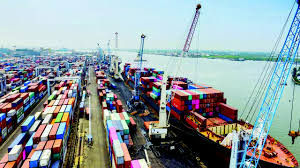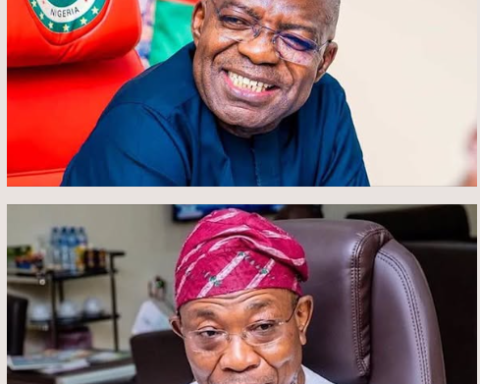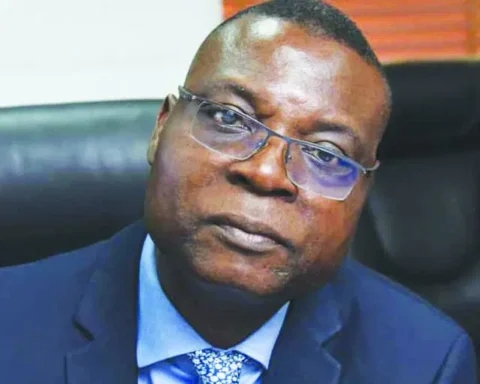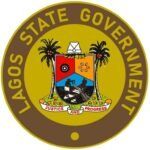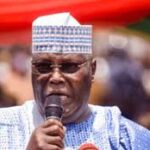By Duruebube ‘Oblong’ Chimazuru Nnadi-Oforgu
FOR years, Nigerians have been told half-truths about port development, dredging costs, and economic feasibility. But a closer look reveals something more sinister: a deliberate, well-orchestrated strategy to centralize Nigeria’s maritime economy around Lagos, keeping the South-South and South-East perpetually dependent, economically stifled and logistically marginalised.
As the multi-billion-dollar Lekki Deep Sea Port surges toward completion, the strategic sidelining of other southern ports, particularly Rivers Port Complex, Onne Port Complex, Calabar Port Complex, and Warri Port, is becoming too glaring to ignore.
Rivers Port Faces Imminent Shutdown, a Calculated Economic Blow
The Federal Government is quietly preparing to decommission the Rivers Port, which serves millions of business operators in the South-South and South-East. A damning report by consultancy firm Cares Limited, commissioned by Nigerian Ports Authority (NPA), has declared the port unsafe and beyond its lifespan.
But here’s the real shocker:
When the NPA sought a soft loan from China Harbour Engineering Company to reconstruct and modernize the port, then Minister of Transportation Rotimi Amaechi flatly rejected the proposal, citing the Federal Government’s policy against taking foreign loans for port infrastructure.
Yet, that same government gladly approved billions of dollars in foreign financing for Lekki Deep Sea Port. The hypocrisy is staggering.
Lagos Is the Only Winner
Nigeria’s existing port infrastructure can only handle about 60 million metric tonnes of cargo annually, far below the national demand of over 100 million metric tonnes. Instead of expanding capacity across multiple zones to decongest Lagos and unlock new economic hubs, the entire deep-sea development strategy has been deliberately concentrated in Lekki.
The Lekki Deep Sea Port project, a $1.6 billion venture, is being financed by a powerful consortium of global lenders including African Development Bank, European Investment Bank, Standard Chartered Bank, and Africa Finance Corporation. Once operational, it will handle over 2.5 million TEUs annually with a draft depth of 19 metres, making it West Africa’s most powerful maritime gateway.
But at what cost? The sidelining of other strategic southern ports funnels nearly all maritime revenue through Lagos, entrenching a monopoly that benefits a narrow economic elite while choking regional development.
The Eastern Ports Are Being Starved by Design
Rivers Port Complex, constructed in 1912, last rehabilitated in 1960, declared unfit, funding denied, shutdown looming.
Calabar Port Complex, dredging costs pegged at ₦50 billion rejected as “uneconomical.”
Onne Port Complex, privately owned, sidelined from federal investments.
Warri Port, slowly degenerating with minimal modernization.
Meanwhile, importers from the East and South-South must truck their goods hundreds of kilometres to Lagos, incurring astronomical logistics costs, collapsing highways, and skyrocketing inflation. This is not economic planning, this is economic sabotage.
Amaechi’s “No Loan” Policy, a Convenient Excuse
In December 2018, Amaechi officially rejected the loan proposal to modernize Rivers Port. Yet, the same government approved foreign loans for rail lines, airports, and of course, Lekki Port.
The NPA itself, in a desperate letter to the Ministry of Transportation, argued that:
“The loan, if approved, will contribute immensely towards the realisation of investment in the ports to engender efficient and effective port operation.”
Amaechi ignored it. The result? A looming total shutdown of the only major federal port serving the South-South/South-East corridor.
A Pattern of Economic Centralization
Nigeria’s maritime policy is being weaponized to keep the South economically dependent. The refusal to dredge Calabar, Warri, and Bonny, while heavily investing in Lagos, is not just a technical decision; it is a political and economic strategy.
By ensuring Lagos remains the sole viable maritime gateway, federal control over trade flows and customs revenue remains centralized. This is Lagos hegemony, dressed in the language of “economic pragmatism.”
What This Means for the East
1. Loss of Jobs: Thousands of port workers, truck drivers, clearing agents, and businesses dependent on eastern ports face extinction.
2. Escalating Costs: Transportation costs from Lagos to the South-East are already suffocating importers. A Rivers Port shutdown will make it worse.
3. Security Crisis: More cargo on the roads means more insecurity, more accidents, more extortion by security agencies.
4. Regional Economic Asphyxiation: The East’s trade potential is deliberately being choked to prevent it from becoming a self-sustaining economic hub.
Global Maritime Standards, Nigeria Is Moving Backward
While global shipping is moving toward deeper ports and multi-regional logistics hubs, Nigeria has chosen to concentrate everything in one location. Nations with smaller GDPs, Ghana, Côte d’Ivoire, Senegal, operate multiple deep-sea ports to spread development and boost regional trade.
Nigeria, with over 200 million people, is locking itself into one chokepoint: Lekki.
The Call to Action
This is not just about ports. This is about economic justice. It is about whether the South-East and South-South will continue to be treated as second-class regions in Nigeria’s economic architecture.
Maritime infrastructure is national infrastructure. The deliberate neglect of eastern ports is a national security risk, an economic blunder, and a political injustice.
Our Eastern Governors, business leaders, and civil society must rise. This is the time to demand dredging, modernization, and equitable development, not handouts or excuses.
Lagos cannot continue to be the only economic heartbeat of a nation of over 200 million people.
Hon. Duruebube ‘Oblong’ Chimazuru Nnadi-Oforgu
Founder, Oblong Media Unlimited
